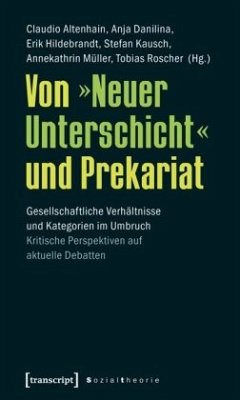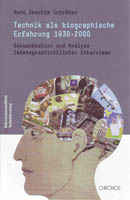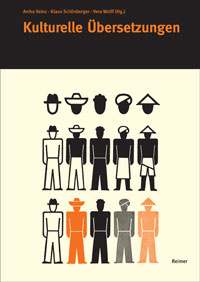CfP: EASST 2006: Reviewing humanness: bodies, technologies and spaces
UPDATE, 7.12. 2005
EASST Conference 2006, University of Lausanne, EXTENDED DEADLINE: Paper and session proposals will now be accepted up to the new deadline of January 16th, 2006
Session proposals are provisionally published on the Conference website http://www2.unil.ch/easst2006/ see "what's new".
Send your session proposal as soon as possible to easst2006 [at] unil [dot]ch
EASST Conference 2006, University of Lausanne, EXTENDED DEADLINE: Paper and session proposals will now be accepted up to the new deadline of January 16th, 2006
Session proposals are provisionally published on the Conference website http://www2.unil.ch/easst2006/ see "what's new".
Send your session proposal as soon as possible to easst2006 [at] unil [dot]ch
-------------------------------------------------------------------
Call for Papers EASST 2006
EASST Conference in Lausanne, Switzerland, August 23-26, 2006
The biennial conference of the European Association for the Study of Science and Technology will be held in Lausanne from 23rd to 26th August, 2006. All members of the European science, technology and innovation studies community are invited to attend. Contributions are particularly encouraged which address the general conference theme.
"Reviewing humanness: bodies, technologies and spaces"
What is it to be human today ? Human "nature" is made and re-made by ideas and practices assembling bodies, technologies, and spaces. Three processes in particular seem to be transforming the very notion of humanness:
1. it is reconfigured by the life sciences, from genetics to neurobiology, with the invention of new forms of human corporeity. Within contemporary philosophy and STS literature, this is associated with conceptual changes, displacing traditional binaries such as human/animal, animal/machine, nature/technology, mind/body towards all kinds of hybrids.
2. it is reassigned to and redistributed throughout sociotechnical networks and artifacts. In other words, the notion of humanness is rethought; it is considered no longer to be enclosed within the human subject, but instead disseminated in and through human-made objects and technological systems.
3. it is rescaled by the increase in transnational connections and the development of a cosmopolitan imaginary. The increase of spatial mobility (international migration, tourism, professional travel, etc.) and information flows, 'stretching' social relations across space, have reterritorialized, and in the best cases broadened, our conceptions of humanness.
The conference organizers invite contributions that address both a general conceptualization of humanness and these three particular processes. The further aim of this conference is to address the political (in the broad sense of the term) dimension of a reviewed humanness. The re-fabrication of humanness is not only an academic thought-experiment but a daily life experience, and sometimes an object of concern, for society as a whole. The organizers therefore also invite contributions specifically focusing
on the politicization of contemporary humanness. Such topics include:
a) issues related to participative forums created by state or supranational organizations to trigger public debate around the anthropological consequences of scientific and technological innovations;
b) initiatives of different segments of civil society (patient organizations, feminist movements, indigenous groups, consumer associations, etc.), including public action and mobilizations, regarding the definition of research agendas, the organization of knowledge production and diffusion, or the political regulation of the three above-mentioned processes;
c) questions regarding participation in the global redefinition of humanness. Are not large sectors of humankind excluded from these changes? Do they mean the same thing regardless of social class, gender and ethnicity?
Threads:
1. Biomedical practices, politics and markets
2. Medicine, healthcare & patients
3. Information and communication technologies
4. Technological artifacts & users
5. Environments, landscapes and resources
6. Spatialities, transnationalism and governance
7. Expertise, governance & publics
8. Normative issues & the production of norms
9. Science, politics & markets
10. Knowledge objects, practices & cultures
11. Science, culture & arts
12. Practices and processes of innovation
13. STS in practice (methods, research networks, computer tools)
Contributions will be welcome from the range of disciplines found within the broad field of science, technology, and society studies. For those whose work does not relate directly to the Conference's theme, there are open paper sessions.
Deadline for abstracts and session proposals: December 16th, 2005
Abstract submissions should include all contact details, the text of the abstract (300 words), three keywords and the preferred Conference Threads. Please use the ad-hoc template file on the website as the basis for your submission and send it by December 16th, 2005, to easst2006[at]unil.ch
If you plan to propose a session, please send a message to the organisers as soon as possible, and put « session proposal » in the subject of your e-mail. In order to help the preparation of the programme, session proposals will be posted on a page of the Conference's website. Session proposals should include all contact details, the text of the proposed session (600 words max.). Please use the ad-hoc template file on the website as the basis for your submission and send it by December 16th, 2005, to
easst2006[at]unil.ch
All information can be found on the Conference's website
Contact : easst2006 [at] unil.ch, Tel/Fax : +41 21 693 84 77
Address: EASST 2006, University of Lausanne, IEPI, Bat. Humense, CH-1015 Lausanne, Switzerland
_______________________________________________
Martina Merz
Observatoire Science,
Politique et Société
University of Lausanne | Switzerland
Rue de Bassenges 4 | CH 1024 Ecublens
phone +41 21 692 3703 | fax +41 21 692 3705
martina.merz[at]unil.ch
_______________________________________________
kschoenberger - 12. Okt, 20:03
















Trackback URL:
https://technikforschung.twoday.net/stories/1053273/modTrackback